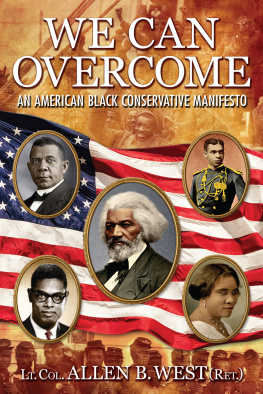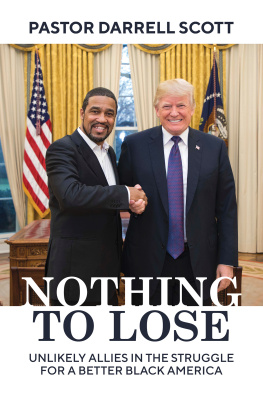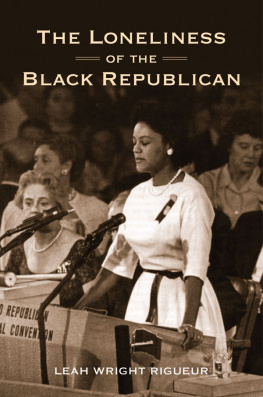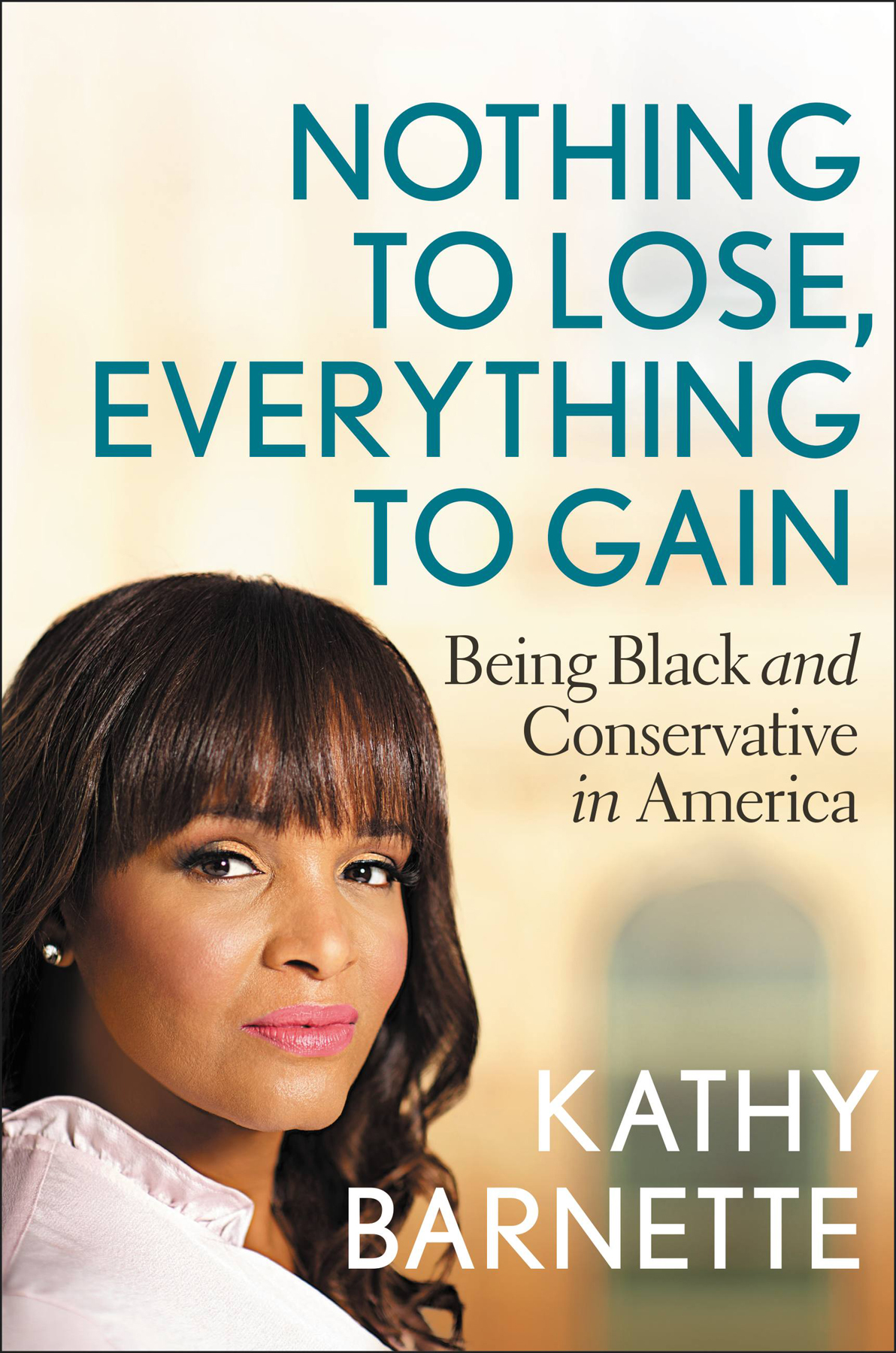Kathy Barnette - Nothing to Lose, Everything to Gain: Being Black and Conservative in America
Here you can read online Kathy Barnette - Nothing to Lose, Everything to Gain: Being Black and Conservative in America full text of the book (entire story) in english for free. Download pdf and epub, get meaning, cover and reviews about this ebook. year: 2020, publisher: Center Street, genre: Politics. Description of the work, (preface) as well as reviews are available. Best literature library LitArk.com created for fans of good reading and offers a wide selection of genres:
Romance novel
Science fiction
Adventure
Detective
Science
History
Home and family
Prose
Art
Politics
Computer
Non-fiction
Religion
Business
Children
Humor
Choose a favorite category and find really read worthwhile books. Enjoy immersion in the world of imagination, feel the emotions of the characters or learn something new for yourself, make an fascinating discovery.

- Book:Nothing to Lose, Everything to Gain: Being Black and Conservative in America
- Author:
- Publisher:Center Street
- Genre:
- Year:2020
- Rating:4 / 5
- Favourites:Add to favourites
- Your mark:
Nothing to Lose, Everything to Gain: Being Black and Conservative in America: summary, description and annotation
We offer to read an annotation, description, summary or preface (depends on what the author of the book "Nothing to Lose, Everything to Gain: Being Black and Conservative in America" wrote himself). If you haven't found the necessary information about the book — write in the comments, we will try to find it.
During his first historic run for the presidency in 2016, Donald Trump made an impassioned plea to the black community. Give me a chance, he said. What the hell do you have to lose?
According to Kathy Barnette, black Americans have nothing to lose, except for crime ridden communities, neighborhoods that have become shooting galleries, more social welfare programs, and the mocking indifference of the Democrat party. Barnette argues that even a cursory look into the black community reveals the destabilizing effect liberal policies have had on the black family.
There was a time when Barnette bought into the same lie as everyone else-that if youre black, you must be a democrat. In fact, she was born into the Democrat party just as much as she was born into brown skin. There was no point of separation. Until she began to understand what it truly means to be black in America. Barnette contends that being black is more than just the color of her skin. Its a culture and a consciousness, too.
In NOTHING TO LOSE, EVERYTHING TO GAIN, Barnette writes about why liberal policies have failed the black community time and time again - and will fail the larger American community as Democrats rush to the hard Left of the party. From the Great Society to Kanye Wests ongoing war with the liberal establishment, this book provides sharp, eloquent commentary on the most pressing issues facing black Americans today: broken family structure, loss of identity, the legacy of slavery, and more.
Barnette argues that President Trump has not been willing to presume that the black vote is a foregone conclusion resting comfortably in the back pockets of Democrats. With his plainspoken style and willingness to face harsh truths, the president has done more for the black community than any president since Abraham Lincoln. Barnette insists the time is now to get back what has been lost, to fix the brokenness, and to recognize and support those who are actually working in our favor.
We have nothing to lose, and even more to gain.
Kathy Barnette: author's other books
Who wrote Nothing to Lose, Everything to Gain: Being Black and Conservative in America? Find out the surname, the name of the author of the book and a list of all author's works by series.







